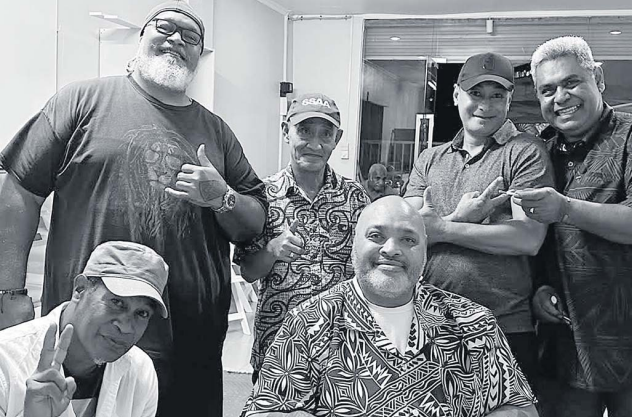This Saturday, Raiwaqa will stage a free live music concert to honour the music and the memory of the legendary George ‘Fiji’ Veikoso and showcase another potentially iconic hometown event.
Since his passing on July 23, his hometown steps up to lament a son and a brother, who once slept homeless at the Peraus’ lovo shed, one who knew the life of living in a broken home; and one who broke through the societal and psychological barriers that haunted youths back in the late 1970s and 80s.
It’s been more than 40 years since the young George Brooks Veikoso left his hometown where he grew up battling break dance moves with his crew against other youths at street corners.
During that era, residents of the densely-populated housing estate faced numerous challenges — financial hardships, unemployment, and the lure of quick money. The stigma surrounding their community was strong, but amid these obstacles, talent and resilience thrived.
Later, Roostrata emerged with their brand of reggae that grabbed the attention of the radio stations. Fiji — or Pojee as he was known in the Hood — joined the band as it headed to the studio to record their first album.
In 1987, driven by political promises, Roostrata was at its prime. By then, Pojee had left for Hawaii, and that’s where everything changed.
Pojee’s past and his deep grounding in the things he loved and the ones that haunted him, drove him to where he wanted to be (as he describes it during an interview with – Falla Talks EP8)
Close friend Tui Lui recalls that no one ever expected that young Pojee, nicknamed Thunder Pop, would rise to fame and reshape Pacific music.
“His journey began with a break dance group in the mid-80s called Revolution City Groove which competed in the hood and nationally,” Tui said.
“We called him Thunder Pop because of his break dance moves.
“Our crew was made up of boys from the hood that included Steve McComber and Dave Stevens, another two budding musicians then.”
Pojee and Steve went on to join Roostrata and Dave, the son of legendary drummer Paul Stevens, was also very musically-inclined.
Tui himself joined Identity Crisis along with former Roostrata member Ioane Burese.
Former Roostrata band member Pakelo Morris said it was Bogun ( hood friend) who introduced young Pojee to the band where he later stamped his mark.
Pojee’s singing was undeniably catchy as Burese says in an interview:
“I could tell immediately this guy could sing. There was something unique about him,” he said.
Tui said Pojee often entertained at Miller’s Store, where they were employed, singing We Are The World, and flawlessly imitating all the different superstars involved in that chart-topping recording.
Behind the scenes, friends watched as he battled in dance competitions.
“He was a good break dancer and he could sing, laying the groundwork for his musical future,” Tui said.
A new wave of island reggae was emerging, and Pojee was destined to leave his mark alongside legends like Herbs and Roostrata.
Back home, Pojee was one the first from Raiwaqa behind brothers Tom Mawi and Mateo Rabaka to break those societal barriers and prove that hope persists despite stigma —showing unemployed youth across the Pacific that change is possible.
Burese earlier wrote in an article last year: “First, there were the early days, when he (Pojee) would be paid $5 a gig.
“It wasn’t very much, but on the streets back then, if you managed it wisely enough, you could survive on a diet of Bongos and ciggies for a day. As Fiji said in an early interview, he was brought up in the hood where it was normal to rock up to the neighbours and ask for salt or sugar because there was none in the house.
“It was the early ’80s and the line between right and wrong was still a little blurred, the concept of women’s rights was still in its embryonic stage and children’s rights were non-existent. Back then, if children were mischievous, the biblical rod wasn’t spared.
“Then there was Raiwaqa and the savage thuggery of its streets. There was Rootstrata, the roots-reggae outfit of which this writer was a humble founding member and Fiji was a frontman along with Freddy Fesaitu and Steve McComber.
“They wrote songs of freedom, songs of economic upliftment, songs about social justice, angry songs of protest against the system, songs of hope, even songs of misguided political ideology that were banned by the radio stations because they were deemed too radical.
“There were tunes heavily influenced by Bob Dylan’s lyrical wizardry or punctuated by the tight three-piece riffing of Sting and The Police and, ultimately, Robert Nesta Marley. The songs of Rootstrata were raw, but they were real
“Back then, local bands were all covering tunes, from rock n roll, hard rock, dancehall disco, funk, island music, R&B and jazz, along with its mutating fusions.
“When Rootstrata decided to go the way of original roots-rock reggae, even though the Heatley brothers’ Exodus were the country’s first exclusively reggae outfit, the idea was so revolutionary that critics baulked at the idea.
“But as history would show, the concept was immensely popular because it was tailor-made for the islands. It was simple, sweet music that had a groove with an attitude.”
Since Pojee’s passing last month, a new generation of music lovers, inspired by his musical influence, is coming together to celebrate his legacy with a free concert in the hood this Saturday.
The lineup features Paradise Roots, The Gang, Ju Ben, Sweet Sensation, Miles & Milita, 4 Quarters, and RRArt.
Raiwaqa Raiwai Art (RRArt), a collective of senior and young musicians united by their passion for music and art, is organising this tribute — honouring Pojee, a name forever etched in their hearts.
A circle of talented musicians has joined in to pay homage, ensuring Pojee’s legacy continues to inspire for years to come.
RRArt Club said the event promises to project a superb stage performance. These bands have at least one or more artists from Raiwaqa or Raiwai.
The concert will follow a day of community awareness where Fiji Police Force is expected to relay the message of HIV and drugs, where a fire drill is also expected to warn children of the dangers of fires.
The club also plans to showcase a variety of SMEs along Grantham corridor. It will be a family-oriented event so they’re looking to hosting kids and their parents in their own park.
The concert is just another way of our hood musicians saying: ‘Goodbye Pojee. Thank you for setting the stage for us.’
It’s as simple as that.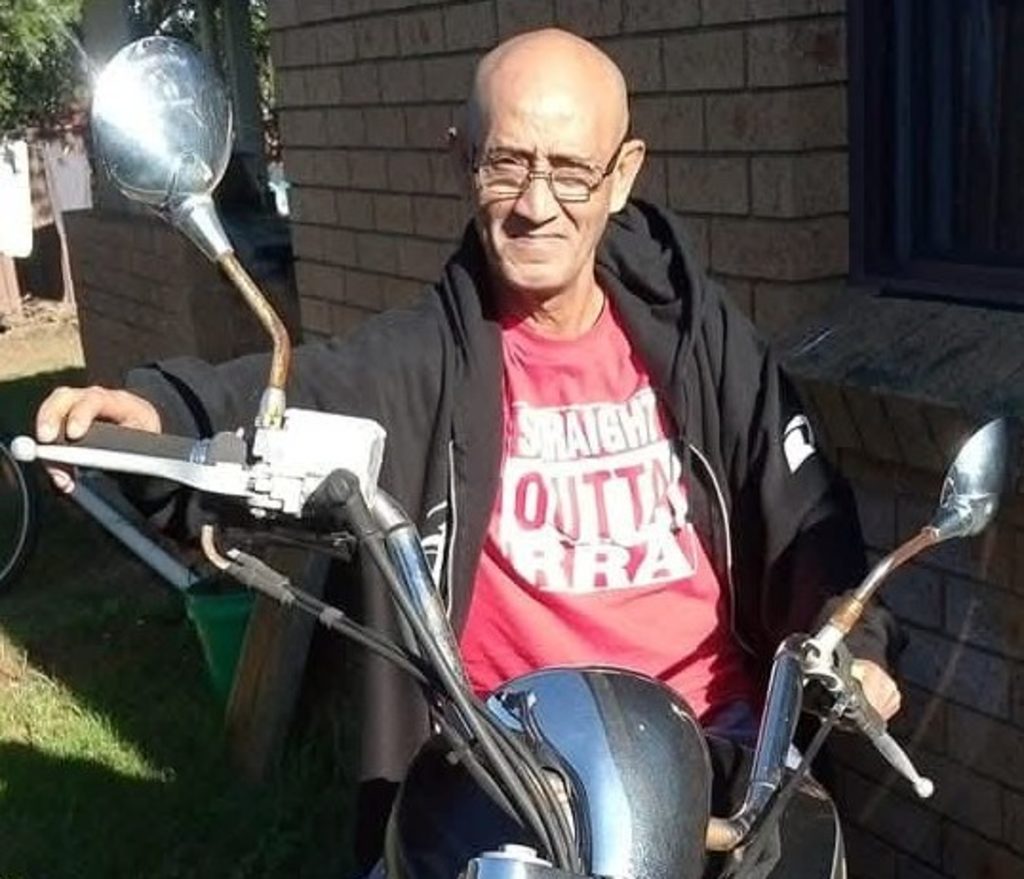
Member of the Roostrata Pakelo Morris. Picture: SUPPLIED/FB
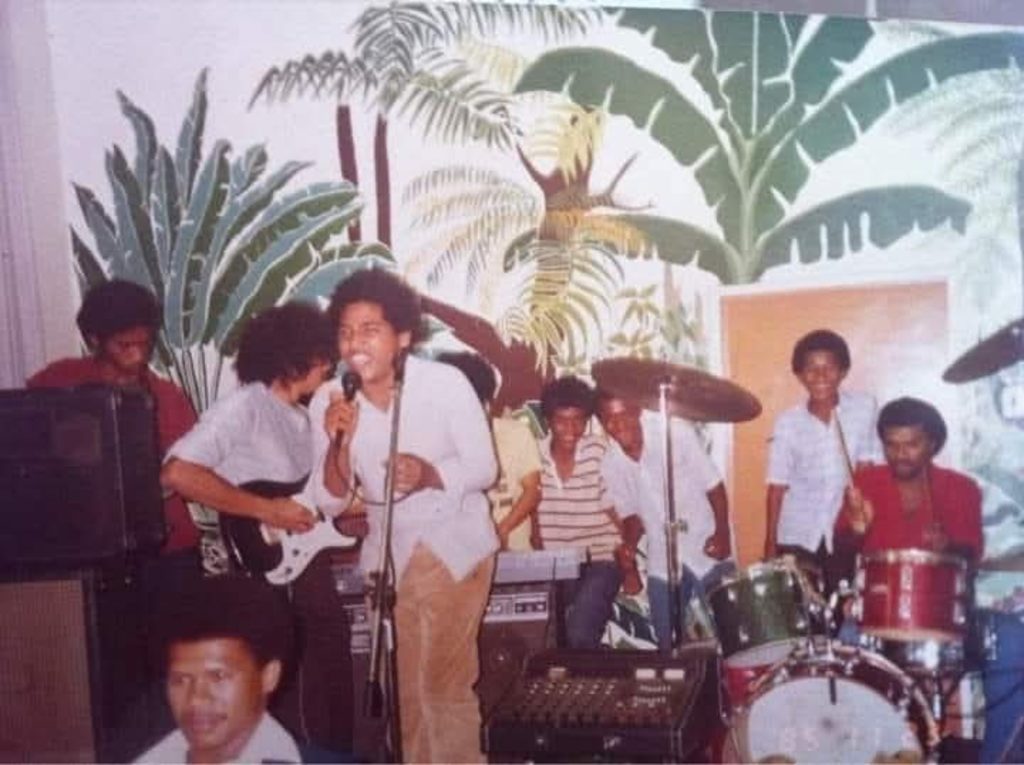
Poji with the Roostrata band in the 80s. Picture: SUPPLIED/FB
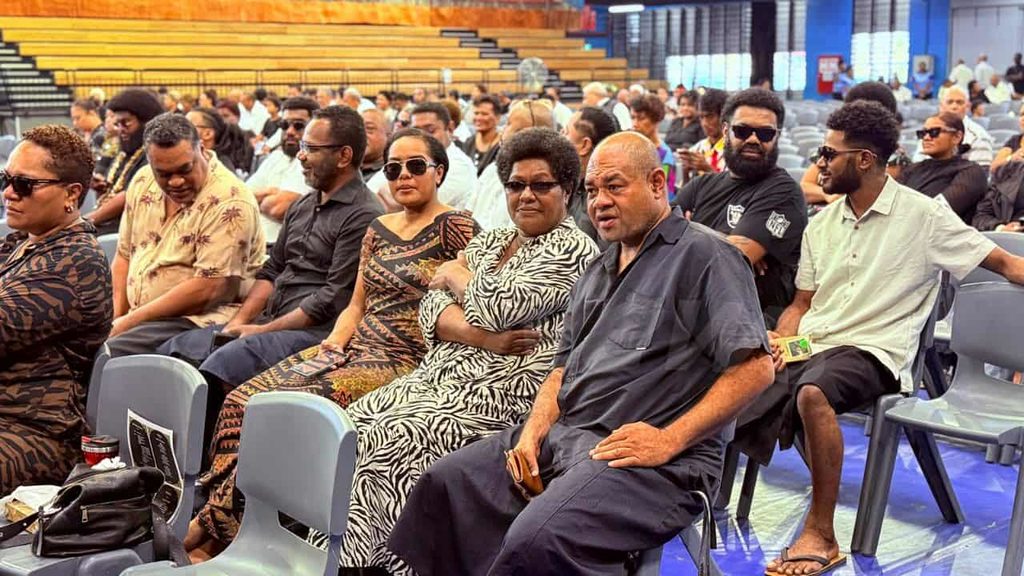
Members of RRArt Club and the local music fraternity attend the funeral service of George ‘Fiji’ Veikoso at the Vodafone Arena earlier this month. Picture: RRArt
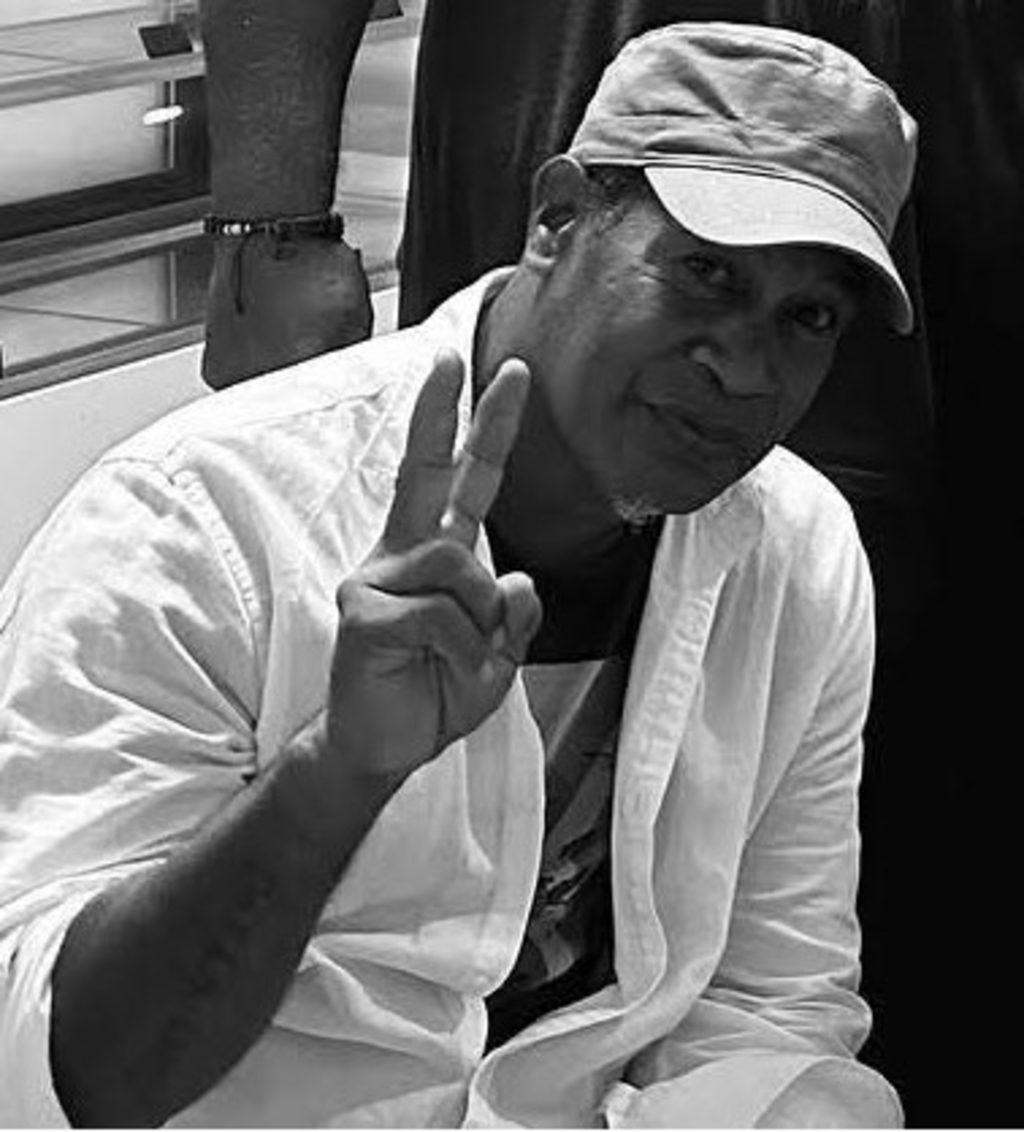
Close friend Steve Mcomber. Picture: Fiji
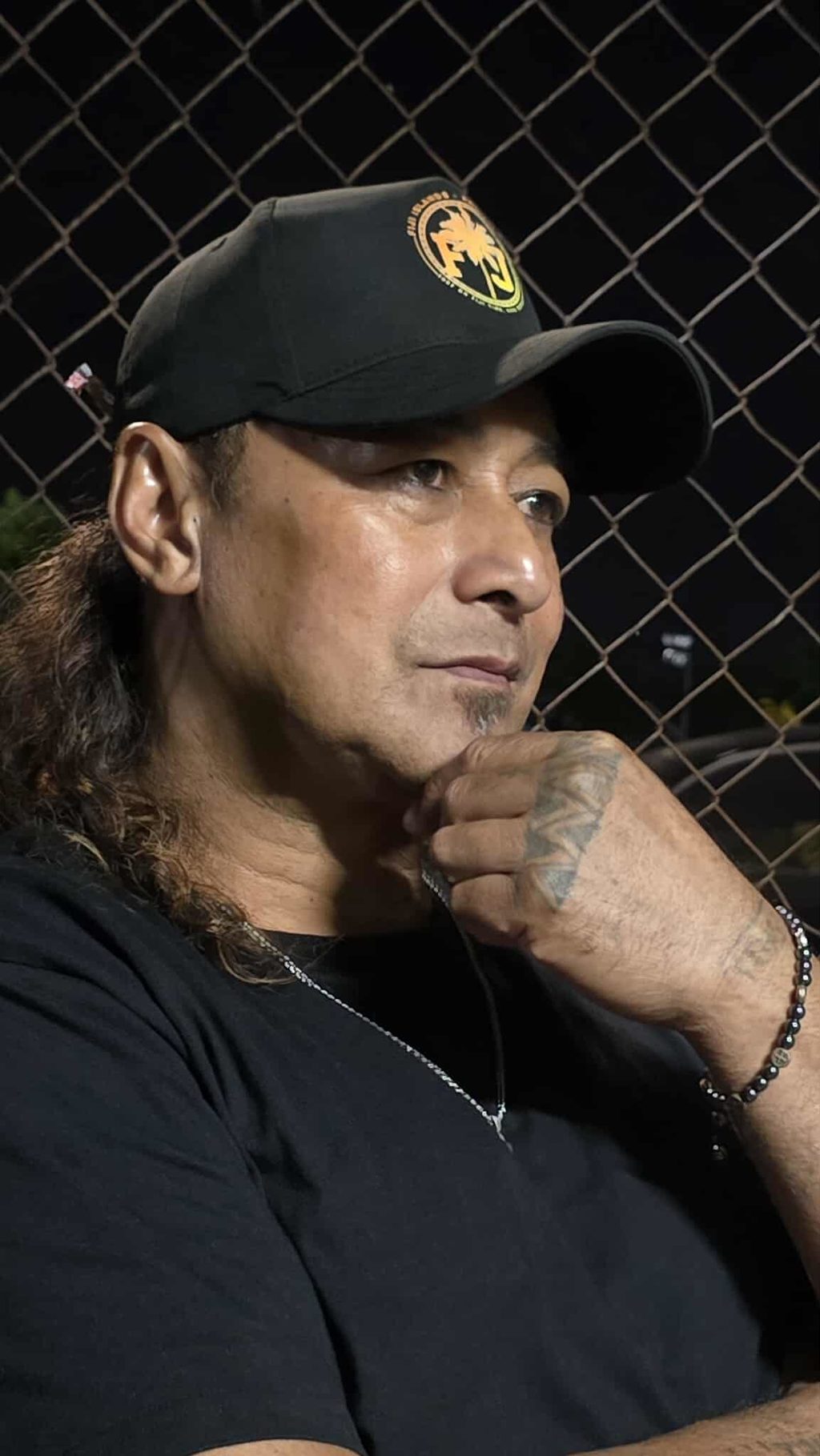
Tui Lui Picture Patrick Qalo
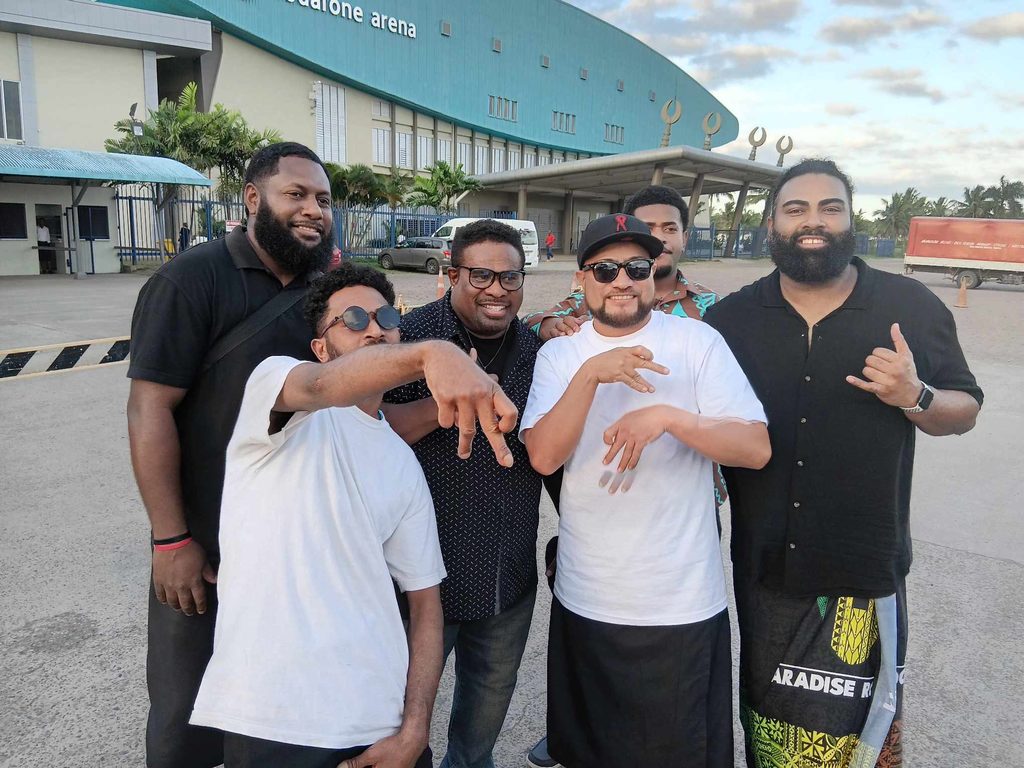
Former Roostrata drummer, Marika Rabaka is flanked by musicians and friends in Suva. Picture: RRArt
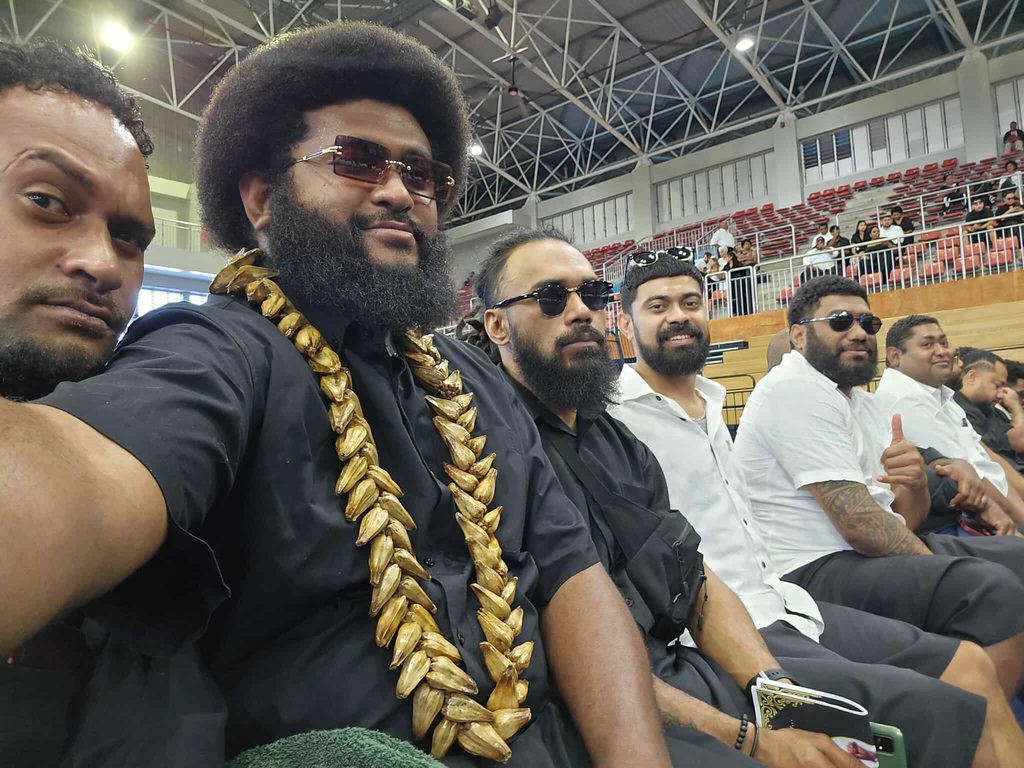
Friends, members of Paradise Roots and The Gang at Pojee’s funeral service.
Picture: Courtesy of Jim Rawailui

